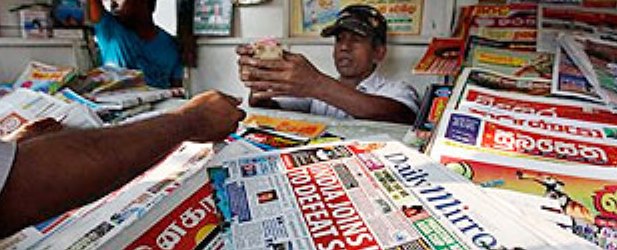The state should not rigidly control private media institutions, especially during the time of a poll. All the broadcasting and telecasting stations will deliver the same message favourable to the regime of the time, Counsel Sanjeewa Jayawardena President’s Counsel told the Supreme Court yesterday.
Counsel was referring to the proposed 19th Amendment to the Constitution.
Petitions against and some interventions in favour of the amendment were heard before the Supreme Court.
Counsel Jayawardena said that no commission however forceful should be permitted by the Supreme Court to restrict the broadcasting and telecasting rights of private media.
Counsel Kanishka Vitharana objecting to the 19th Amendment said the basic structure of the 1978 Constitution would be changed and the Prime Minister would have some control over the President, who was at present the elected Head of State.
Counsel Kushantha Warnasinghe said Article (3) of the Constitution referred to sovereignty of the people including the power of the government. Article (4) of the Constitution said Executive Power including defence was vested in the elected President.
Hence, people should be consulted at a referendum before any changes were effected to them, he argued. If institutions with twenty five per cent foreigners were granted right to information, organisations hostile to the country could make use of that provision. Hence Section 41(a)/3 of the impending amendment were not favourable to the wellbeing of this state, he said.
Sanjeewa Jayawardena, PC told the Court that the rigid control of private print and electronic media by the State sounded draconian and that proposed provision should be deleted.
Broadcasting was done in all three languages. The political broadcasts on those channels before the elections would be strictly controlled. Guidelines should be formulated before a poll, he said.
Faiz Mustapha P.C. said that he agreed with Counsel Sanjeewa Jayewardena as regards the state control over the private broadcasting and telecasting stations, especially on political broadcasts, telecasts and that clause should be deleted in the proposed amendment.
Counsel D. Weraduwage supporting his own petition said that foreign intelligence agencies should not be permitted to make this country a playground during an election. The President of the country should be elected by the people. The 19th Amendment should not be unduly permissive in granting the right to information to non-nationals.
Counsel Suren Fernando who appeared for an intervention petitioner M. M. Mustapha, said the 19th Amendment would not permit a one man rule. It would introduce more checks and balances.
Counsel Krishmal Warnasuriya appeared for intervention, Vijitha Herath, JVP Member of Parliament. The Counsel was instructed by Sunil Watagala.
Counsel Warnasuriya explained that for good governance and the right to franchise, the people should have access to information.
The proposed amendment complimented the existing rights of the people.
The Attorney General, Uanjan Wijatillake, P.C., appeared for the state.
The bench comprised the Chief Justice K. Sripavan, Justice Chandra Ekanayake and Justice Priyasarth Dep.
The case will resume on Monday.
by Chitra Weerarathne
IS
